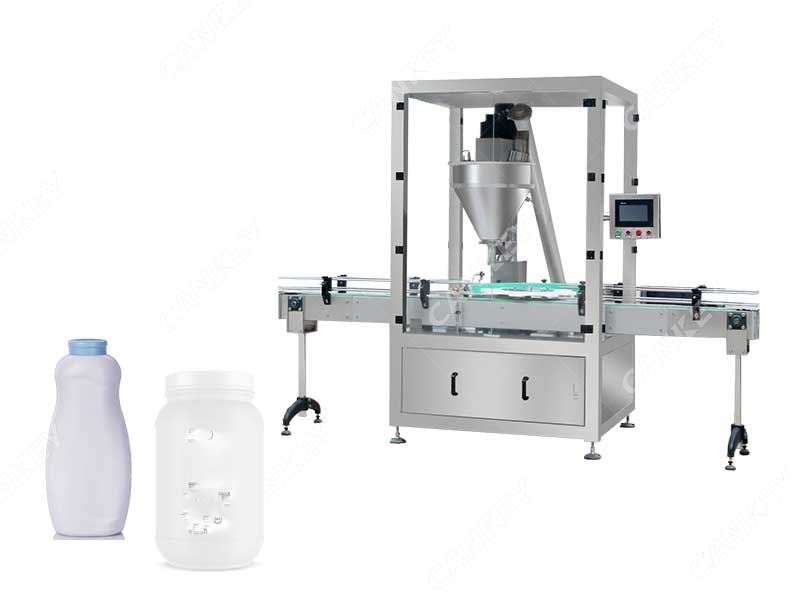In the world of modern manufacturing, efficiency, accuracy, and speed are paramount. Industries dealing with powdered substances, such as pharmaceuticals, food processing, cosmetics, and chemicals, rely heavily on precise packaging to maintain product quality and consistency. Enter the automatic powder filling machine—a technological marvel that has transformed these industries by streamlining the packaging process, minimizing waste, and ensuring compliance with stringent quality standards. This article will talk about what is the use of powder filling machine.
The Evolution of Powder Filling Technology
Traditional powder filling methods often involved manual labor, which was not only time-consuming but also prone to errors. Inaccurate measurements and inconsistent fills could lead to wasted materials, compromised product quality, and increased operational costs. The advent of automatic powder filling machines marked a significant leap forward, addressing these challenges and offering a range of benefits.
Key Features and Functions
Automatic powder filling machines have been designed to provide a comprehensive solution for industries that rely on powdered substances. These machines come equipped with a variety of features and functions that contribute to their effectiveness:
- Precision: These machines utilize advanced technology to ensure precise measurements, minimizing overfills and underfills that can lead to waste or product inconsistencies.
- Speed: Automatic machines are capable of rapid packaging, significantly increasing production rates compared to manual methods. This acceleration in output leads to improved overall efficiency.
- Consistency: Maintaining consistent fill weights and packaging quality is crucial for brand reputation and customer satisfaction. Automatic powder filling machines excel in this aspect by eliminating human errors and delivering uniform results.
- Versatility: These machines can handle a wide range of powdered products, from fine powders to granulated substances, making them suitable for various industries.
- Hygiene and Cleanliness: In industries like pharmaceuticals and food processing, maintaining a sterile environment is paramount. Automatic powder filling machines are designed to adhere to strict hygiene standards, reducing the risk of contamination.
- Minimized Product Loss: Waste reduction is a significant benefit of these machines. By accurately measuring and dispensing powders, they help minimize product loss, ultimately saving costs for manufacturers.
- Flexibility: Modern automatic powder filling machines often come with programmable settings, allowing manufacturers to adjust fill volumes, container sizes, and other parameters easily. This flexibility enhances their adaptability to diverse production needs.
Applications in Various Industries
The use of automatic powder filling machines spans across several industries:
- Pharmaceuticals: In the pharmaceutical industry, precision and consistency are paramount. Automatic powder filling machines ensure accurate dosing of active ingredients, reducing the risk of medication errors and ensuring patient safety.
- Food and Beverage: From powdered seasonings to baking mixes, these machines guarantee that each package contains the exact amount of product as advertised, maintaining flavor consistency and customer satisfaction.
- Cosmetics: In cosmetics manufacturing, accurate and consistent filling of powders like talc, foundation, and blush is crucial for product quality and user experience.
- Chemicals: Chemical industries require precision in powder measurement to avoid reactions that could compromise safety. Automatic powder filling machines play a crucial role in preventing errors and ensuring the integrity of the end product.
- Agriculture: Industries producing agricultural supplements like fertilizers rely on these machines to ensure even distribution of nutrients and chemicals.
Powder filling machines have transformed the landscape of industries that deal with powdered substances. With their precision, speed, consistency, and versatility, these machines have not only increased operational efficiency but also elevated product quality and safety standards. As technology continues to advance, we can expect these machines to become even more sophisticated, revolutionizing manufacturing processes across various sectors.


